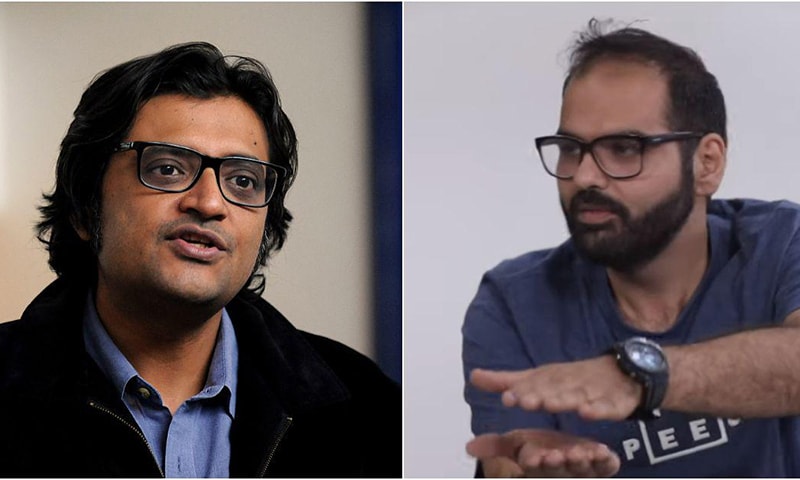On Tuesday, comedian Kunal Kamra found himself on the same flight as Republic TV anchor Arnab Goswami, who is famous for his aggressive journalism that, his critics claim, is most often deployed to protect the interests of the Bharatiya Janata Party and its governments. Kamra did what Goswami has done many times before: he proceeded to ask a reluctant Goswami some aggressive questions.
Kamra then released a video of the incident.
This set off an extraordinary chain reaction. Within a few hours, Indigo, the airline aboard whose aircraft the exchange had occurred, suspended Kamra from flying for six months. It argued that “his conduct onboard was unacceptable behaviour”. This was communicated via the social media website Twitter. In its message, Indigo tagged the Union minister of civil aviation.
BJP to the rescue
The Union minister of civil aviation then himself took action, quoting Indigo’s action to "advise other airlines to impose similar restrictions on the person concerned". Soon, three other airlines — Air India, SpiceJet and GoAir — also banned Kamra from travelling on their flights "until further notice", each making sure to tag the civil aviation minister.
Not only was a Union minister’s public intervention on behalf of Goswami extraordinary, the action it prompted did not, on the face of it, seem to have followed due procedure. As per the Union government’s own rules, the highest penalty for unruly behaviour on flights, if limited to verbal harassment, is a flying ban for three months. Yet Kamra was banned for six months.
Not only was the action against Kamra improper, it was arbitrary. In 2017, when the Ravindra Gaikwad from the Shiv Sena (then a Bharatiya Janata Party ally) assaulted Air India crew members, the Modi government actually directed Air India to revoke his ban after just 14 days. Ironically, Goswami’s own Republic news channel did the exact same thing as Kamra in 2017, accosting a politician on a plan and forcibly asking him questions. No action was taken at the time.
Media-state nexus
The extraordinary, government-led action against Kamra highlights an uncomfortable phenomenon: large sections of the Indian media today are genuflecting to the government and being rewarded for it. This is not new, of course. "When they were asked to bend, the media crawled," LK Advani had written, describing the widespread media support for Indira Gandhi’s 1975 Emergency. The difference today, though, is one of degree: the reach of television today allows certain sections of the media to influence public discourse to an unprecedented degree. Many journalists use this reach not to do their primary job — holding power to account — but to push the line of the ruling party.
For the past six years, Goswami’s journalism has made it a point to unabashedly support the BJP. One of the main investors in his channel Republic when it started was Rajeev Chandrasekhar, who was also the vice chairman of the BJP-led National Democratic Alliance in Kerala.
This is not all. Goswami’s channel has used its platform to spread unverified allegations that are a danger to the people it has targeted. In 2018, the channel made unverified claims against activist Sudha Bharadwaj, using highly incendiary labels like “urban naxal” to tar her. Soon after the broadcast, Bharadwaj was arrested by the Pune Police for allegedly planning a terror plot. Now, more than a year after Bharadwaj’s arrest, the police are yet to produce any credible evidence — a sequence of events that points to a disturbing collusion between Republic TV and the authorities in helping bolster the BJP’s politics of toxic nationalism.
This is not a one-off incident. Most recently, Goswami’s channel went on to label the protests against the Citizenship Amendment Act and the National Register of Citizens at Delhi’s Shaheen Bagh “anti-Hindu”. Again, this incendiary, opinionated broadcast dovetailed with the BJP’s politics in the upcoming Delhi elections, where the party has been trying to portray the anti-NRC protests in a communal light.
Goswami’s long history of playing the ruling party’s rottweiler is crucial context for Wednesday’s action. That a Union minister publicly intervened to arbitrarily ban a comedian from flying as punishment for putting Goswami in an uncomfortable spot is a troubling sign for Indian democracy.
This article originally appeared at Scroll.in and has been reproduced with permission.















































